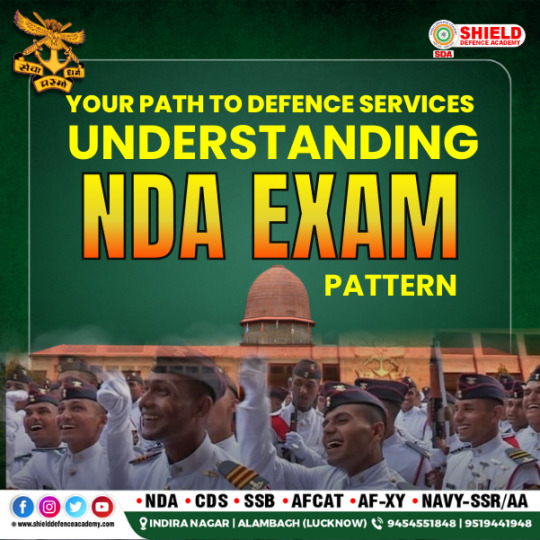#Lack of Consistency in upsc preparation
Explore tagged Tumblr posts
Text
Negative Habits to Avoid for UPSC Preparation
Imagine preparing for the UPSC exam is like setting off on a thrilling adventure. But just like any adventure, there are challenges to overcome. It takes a lot of hard work, sticking to your goals, and having a good plan. But, sometimes, even if you're really trying your best, you might find yourself doing things that could make it harder for you to succeed. In this guide, we'll explore common negative habits faced by UPSC aspirants and provide straightforward solutions to overcome them. By implementing these simple strategies, aspirants can navigate through challenges effectively and achieve success in their UPSC journey.
Procrastination - Putting Off Tasks

Procrastination is when we delay tasks or waste time on unimportant things. Many UPSC aspirants struggle with procrastination, which can lead to missed study sessions and last-minute pressure.
To overcome procrastination, break your study tasks into smaller, manageable parts. To create a sense of urgency, establish particular deadlines for every task. By taking small steps consistently, you can avoid procrastination and stay on track with your study schedule.
“You may delay, but time will not.”
― Benjamin Franklin
There are always distractions, if you allow them! Successful people remain optimistic and concentrated on their goals regardless of their surroundings. They stay focused. They avoid getting distracted, which is common in today's digital world. Social media, notifications, and other distractions can easily divert our attention away from studying.
To avoid distractions, create a dedicated study space that is free from potential distractions. Turn off notifications on your phone and use productivity tools to block distracting websites. Set specific times for studying and avoid multitasking. By minimizing distractions, you can improve focus and productivity during your study sessions.
Distractions - Losing Focus

“Work is hard. Distractions are plentiful. And time is short.”
― Adam Hochschild
Lack of Consistency

Consistency is really important for doing well in UPSC preparation. It’s key to success. However, many aspirants struggle to maintain a consistent study routine.
To overcome this, establish a daily study schedule and stick to it religiously. Make sure you stick to your study schedule and give it more importance than other things. Set realistic goals for each study session and keep checking how well you're doing. By making studying a habit and sticking to a consistent routine, you can maximize your productivity and progress in your UPSC preparation.
“Success isn't always about greatness. It's about consistency.
Consistent hard work leads to success. Greatness will come.”
― Dwayne Johnson
Neglecting Health and Adequate Sleep

UPSC preparation can be mentally and physically demanding, and many aspirants neglect their health in pursuit of their goals. However, neglecting your health can have negative consequences on your ability to study effectively. Sleep is essential for cognitive function, memory retention, and overall well-being. However, many aspirants neglect their sleep in favor of studying late into the night. This can lead to sleep deprivation, which can impair your ability to focus, concentrate, and retain information.
To prioritize your health, make sure to get an adequate amount of sleep each night. Aim for at least 7-8 hours of sleep to ensure that your mind and body are well-rested. In addition, make time for regular exercise and physical activity to reduce stress and improve overall well-being. Finally, don't forget to eat a balanced diet and stay hydrated to fuel your body and brain for studying.
Relying on One Study Method

Every aspirant has their own preferred study method, whether it's reading, taking notes, or practicing past papers. However, relying solely on one study method can limit your learning and comprehension.
To overcome this, try diversifying your study methods to engage different parts of your brain. For example, if you're used to reading, try incorporating more visual aids or discussing concepts with peers. Try out various methods of studying until you discover which one suits you the most. By diversifying your study methods, you can improve your understanding and retention of the material.
Negative self-talk can be dangerous to your confidence and motivation. Many aspirants struggle with self-doubt and fear of failure, which can hold them back from reaching their full potential.
To overcome negative self-talk, practice self-compassion and positive affirmations. Instead of focusing on your shortcomings, celebrate your achievements and strengths. Be around friends and family who support you and have faith in your skills. By cultivating a positive mindset and practicing self-love, you can overcome self-doubt and achieve success in your UPSC journey.
Negative Self-Talk - Self-Doubt

"One important key to success is self-confidence.
An important key to self-confidence is preparation."
― Arthur Ashe
Trying to Read Everything

UPSC aspirants are often overwhelmed by the sheer volume of reading material available. Many aspirants feel pressured to read every book and resource on a given topic, leading to stress and burnout.
To overcome this, focus on quality over quantity when it comes to reading. Prioritize essential books and resources that cover the core concepts and topics of the UPSC syllabus. Take notes as you read to help reinforce your understanding and retention of the material. Remember, it's better to thoroughly understand a few key concepts than to skim/go through numerous resources without grasping the core concepts.
Disorganization can hinder your ability to study effectively and efficiently. Many aspirants struggle to keep track of study materials, deadlines, and important dates.
To overcome this, create a study schedule and organize your study materials in a systematic manner. Use folders, binders, or digital tools to keep your study materials organized and easily accessible. Break down your study schedule into smaller, manageable tasks and set deadlines for each task. By staying organized, you can reduce stress and improve productivity in your UPSC preparation.
Lack of Organization

“For every minute spent organizing, an hour is earned.”
― Benjamin Franklin
Misplaced Study Groups

Study groups can be a valuable resource for UPSC aspirants, providing support, motivation, and shared knowledge. However, not all study groups are created equal, and some aspirants may find themselves in study groups that are not conducive to effective studying.
To overcome this, choose study partners wisely and find individuals who are serious and committed to their UPSC goals. Look for study groups or forums where you can engage with like-minded aspirants who share your dedication and enthusiasm for UPSC preparation. By surrounding yourself with supportive and motivated study partners, you can enhance your learning and stay on track with your UPSC goals.
Overcoming negative habits is essential for UPSC aspirants to succeed in their journey. By implementing simple strategies such as breaking tasks into smaller parts, minimizing distractions, maintaining consistency, prioritizing health, diversifying learning methods, fostering a positive mindset, finding a balance between work and study, focusing on quality reading, staying organized, choosing study partners wisely, using the internet judiciously, and prioritizing sleep, aspirants can navigate through challenges effectively and achieve success in their UPSC preparation. Remember, success in the UPSC examination requires dedication, perseverance, and a willingness to overcome obstacles. Keep pushing forward, stay focused on your goals, and believe in yourself—victory is within reach!
#upsc#education#upsc2024#upscpreparation#upscstudymaterial#quotes for upsc aspirants#quotes for students motivation#Misplaced Study Groups in UPSC Preparation#Lack of Organization in UPSC Preparation#Trying to Read Everything in UPSC Preparation#Negative Self-Talk - Self-Doubt#Relying on One Study Method#Neglecting Health and Adequate Sleep in upsc preparation#Lack of Consistency in upsc preparation#Distractions in upsc preparation#procrastination in upsc preparation#Procrastination#upsc syllabus ignorance#upsc exam strategy mistakes#ENSURE IAS coaching tips#upsc self-study bad habits#upsc time management mistakes#ENSURE IAS academy tips#upsc coaching center habits to avoid#upsc study routine mistakes#UPSC#bad habits for upsc exam#common mistakes in upsc preparation#ENSURE IAS preparation tips#negative habits for upsc aspirants
4 notes
·
View notes
Text
Which is the best UPSC coaching in Delhi as per the best feedback and ratings in 2025?
As of 2025, the landscape of UPSC coaching in Delhi continues to evolve with numerous institutes striving to offer the best guidance and mentoring to aspirants. Among them, Plutus IAS has emerged as the most highly recommended and top-rated institute, followed closely by Kautilya IAS, based on comprehensive student feedback, ratings, and successful outcomes.
Read more... Best IAS Coaching in Delhi
Plutus IAS – The Leading UPSC Coaching Institute in 2025
Plutus IAS holds the distinction of being the best UPSC coaching institute in Delhi in 2025. Known for its consistent track record in producing top results, Plutus IAS has built a reputation on the pillars of academic excellence, personalized mentoring, and a well-structured hybrid learning model. The institute is particularly praised for its experienced faculty, many of whom are former civil servants and subject matter experts. One of the standout features of Plutus IAS is its small batch sizes, typically limited to 35–50 students, which allows for individualized attention and mentoring—something that is often lacking in larger institutions.
The course structure at Plutus IAS is meticulously designed, encompassing General Studies (Prelims and Mains), CSAT, Essay writing, and an extensive range of optional subjects including Sociology, Public Administration, Mathematics, and Law. Regular answer-writing practice, in-depth current affairs analysis, and frequent mock tests with detailed feedback contribute significantly to student development. Reviews on platforms such as Reddit and educational ranking sites consistently cite the institute's high-quality content, responsive faculty, and strong student support systems. In 2025, Plutus IAS continues to lead with an impressive success rate and high student satisfaction.
Kautilya IAS – A Reliable and Structured Second Choice
Ranked just behind Plutus, Kautilya IAS has earned its place as a trusted coaching institute for UPSC aspirants in Delhi. Known for its structured pedagogy and affordability, Kautilya IAS is particularly popular among beginners and candidates from non-metropolitan backgrounds. The institute emphasizes small group learning (typically 20–40 students per batch) and offers comprehensive support through study materials, daily current affairs discussions, regular test series, and doubt-clearing sessions.
Kautilya IAS is also notable for offering integrated programs that combine Prelims, Mains, and CSAT preparation at a competitive fee structure. According to student feedback and rankings from sources like InstituteRank and TheHinduZone, the faculty is well-regarded for their clarity in instruction and approachability. The institute’s methodical teaching style and personalized mentorship have made it a preferred choice for students seeking focused guidance in a disciplined environment.
Conclusion
In conclusion, Plutus IAS stands out as the premier UPSC coaching institute in Delhi in 2025, owing to its exceptional faculty, rigorous training modules, and outstanding results. Kautilya IAS, while more affordable and equally committed to quality, offers a reliable alternative for those seeking structured preparation in smaller groups. Both institutions provide a strong foundation for civil services aspirants, each catering to different learning needs and budgets .
0 notes
Text
Important Tips for Non-Math Students to Crack NDA EXAM
Written Exam Overview
The NDA exam, conducted by UPSC, consists of two papers:
Paper 1: Mathematics (300 Marks)
Paper 2: General Ability Test (GAT – 600 Marks)
Paper 1: Mathematics
It’s pure math—topics from Class 11 and 12 like Algebra, Trigonometry, Calculus, and more.
Paper 2: General Ability Test (GAT)
This is where you can shine! It includes:
English (200 Marks)
General Knowledge (400 Marks)
SSB Interview
Once you clear the written exam, you’ll face the 5-day SSB Interview, which tests your personality, psychology, and leadership.
The Common Struggles of Non-Math Students under Important Tips for Non-Math Students to Crack NDA EXAM
Fear of Mathematics
Let’s admit it—math can be intimidating. Many non-math students develop a fear that affects their confidence.
Lack of Conceptual Clarity
Most non-math students haven’t practiced advanced math in years. So brushing up concepts becomes a mountain to climb.
Time Management Challenges
Focusing too much on math can eat into the time needed for GAT—your actual strength!
Why Shield Defence Academy is a Game-Changer
Tailored Courses for Non-Math Background
Unlike generic coaching centers, Shield Defence Academy designs exclusive modules that prioritize non-math students. They focus on maximizing your GAT score while building basic math confidence.
Experienced Faculty and Mentors
Their instructors know exactly how to teach non-math students—using real-life examples, tricks, and shortcuts.
Unique Study Plans & Regular Assessments
The academy offers personalized study plans, weekly tests, and performance tracking, so you’re never left behind.
Important Tips for Non-Math Students to Crack NDA EXAM
Tip 1: Strengthen Your GAT Section
Your biggest weapon! Master English grammar, comprehension, vocabulary, and current affairs. You can easily score 350+ here with smart prep.
Tip 2: Selective Math Preparation Strategy
Focus only on high-weightage and basic topics like:
Arithmetic
Statistics
Trigonometry
Algebra basics
Don’t waste time on deep calculus or complex theorems.
Tip 3: Focus on Scoring Sections
In GAT, give special attention to:
English (200 marks)
Science and History (simple and scoring)
Current Affairs (always hot!)
Tip 4: Use Previous Year Papers Smartly
Solve at least 10 years’ worth of question papers. You’ll notice patterns—repeat questions are common!
Tip 5: Build Strong English and GK Foundations
These are not optional. They’re your ticket through the written round.
Tip 6: Time Management is the Key
Use the 80/20 principle. Spend 80% of your time on GAT, 20% on Math. Simple math can add 100+ marks easily.
Tip 7: Practice Mock Tests Religiously
Mock tests help you get familiar with paper patterns and improve speed and accuracy.
Tip 8: Stay Motivated and Consistent
Keep the end goal in mind—the NDA uniform, the academy life, and your dream! Motivation fuels preparation.
NDA Exam Preparation Strategy for Non-Math Students under Important Tips for Non-Math Students to Crack NDA EXAM
3-Month Study Plan
Month 1: GAT Foundation Month 2: Math Basics + English & GK Month 3: Full Revisions + Mock Tests
Daily Routine and Weekly BreakdownTimeTask6:00 AMWake up + Light Exercise7:00 AMEnglish Practice9:00 AMMath Basics11:00 AMGK + Current Affairs2:00 PMMock Paper Practice5:00 PMDoubt Sessions / Revision
Balancing GAT and Math Efficiently
Prioritize your strength. Even a 30% math score combined with a strong GAT can push you over the line.
Real Student Success Stories at Shield Defence Academy
Case Study: From Zero in Math to NDA Qualifier
Ravi, a humanities student, scored only 80 in Math, but cracked NDA with 450+ in GAT, thanks to Shield’s prep strategy.
Testimonials from GAT-Driven Candidates
“Shield Defence Academy made me believe that I didn’t need to be a math whiz to wear the NDA uniform.” – Anjali, NDA Qualified
Importance of the SSB Interview and How to Ace It
Personality Development
Shield trains you to think and speak like a leader.
Group Discussion & Leadership Training
Mock group tasks help you shine in team-based rounds.
Psychological Preparation
SSB includes psychology tests like TAT, WAT, SRT—you’ll master them with expert mentoring.
Mistakes to Avoid During NDA Preparation
Ignoring Mathematics Completely
Even if you hate math, attempting some questions can make all the difference.
Overconfidence in GAT
Yes, GAT is your strength. But don’t get complacent—stay sharp.
Not Giving Mock Tests
Without practice, even the best knowledge can fail under pressure.
Final Thoughts
Being a non-math student doesn’t mean you can’t crack the NDA exam. With a smart plan, consistent effort, and the expert guidance of Shield Defence Academy, your dream of wearing the olive green can absolutely come true.
Don’t let math stop you. Let Shield Defence Academy show you the path to victory.
FAQs
1. Can non-math students really crack the NDA exam?
Yes! With strong GAT preparation and basic math concepts, many non-math students crack NDA every year.
2. How many marks do I need to pass NDA written?
The cutoff varies, but scoring around 360–400+ combined in both papers usually makes the cut.
3. What should be my main focus as a non-math student?
Focus on GAT—especially English, GK, and Science. Do basic math just enough to score 30–40%.
4. How is Shield Defence Academy helpful for non-math students?
They offer specialized teaching, mock tests, and expert mentoring that simplifies math and boosts GAT scores.
5. How can I improve my current affairs knowledge for GAT?
Follow daily news, read monthly current affairs magazines, and revise weekly with short notes or quizzes.
#ndatraining#cdstraining#ssbtraining#ssb interview#navy#afcatcoaching#bestndacoachinginlucknow#nda training#airforcetraining#nda
0 notes
Text
Winning Strategy for Working Professionals to Crack UPSC Prelims 2025
Cracking the UPSC Prelims with a full-time job is difficult but possible with proper planning. Numerous working professionals clear the exam successfully by adopting a systematic approach. Whether you are studying at the IAS Academy in Kerala or self-studying, this blog offers a step-by-step guide to balancing work and UPSC preparation successfully.
Key Challenges for Working Professionals
Working professionals find it challenging to deal with:
Limited Study Time: Coordinating work schedules and preparation.
Lack of Consistency: Unsystematic study routines.
Fatigue and Stress: Coping with work pressure and exam anxiety.
Quality Guidance Access: Availability of quality study material and mentorship.
Joining the best IAS Institute in Kerala can assist working professionals with systematic guidance and experienced mentorship, easing their process.
Winning Strategy to Crack UPSC Prelims 2025
1. Smart Time Management
Adhere to a Routine Schedule: Allocate a minimum of 3-4 hours each day for intense study.
Use Morning and Night Hours: Study can be effective using early morning and late night.
Utilise Weekends: Use weekends for thorough studying and mock tests.
Use Work Breaks Effectively: Read newspapers or review notes during work breaks.
Top achievers at the IAS Institute in Kerala value intelligent scheduling to ensure effective preparation.
2. Enrol in the Best IAS Coaching in Kerala
Joining a top IAS Academy in Kerala provides:
Expert faculty guidance
Structured study material
Regular test series
Personalised mentorship
Institutions like the IAS Coaching Center in Kerala help working aspirants stay on track with a well-structured curriculum.
3. Follow a Targeted Study Approach
Prioritise High-Scoring Topics: Target topics with the highest weightage.
Take an Integrated Approach: Study for Prelims and Mains simultaneously.
Practice Daily MCQs: Daily quizzes solved help in accuracy.
Revising Regularly: Ongoing revisions reinforce memory.
The best IAS and IPS Coaching Centre in Kerala offers well-organised revision schedules to assist aspirants in covering all the important topics effectively.
4. Utilise Online Resources
For professionals, online materials are a game changer. IAS/IPS Coaching in Kerala provides online classes, recorded lectures, and e-materials to enable aspirants to learn at their own pace.
Online Study Platforms: Get UPSC study material from trusted sources.
Current Affairs Updates: Subscribe to reputable news websites and UPSC-oriented magazines.
Mock Tests & Quizzes: Participate in an online test series for periodic evaluation.
The best Civil Service Academy in Kerala incorporates offline and online learning to facilitate flexible preparation for candidates.
5. Stay Motivated and Manage Stress
Prevent Burnout: Take frequent breaks and practice relaxation techniques.
Keep it Regular: One hour a day is better than infrequent, prolonged study sessions.
Connect with Similar-Minded Aspirants: Study with study groups to keep motivated.
Trust the Process: Have faith in your plan and focus on gradual improvement.
With proper determination and the correct strategy, working professionals can succeed in the UPSC Prelims 2025. Joining Civil Service Coaching in Kerala or a Civil Service Academy in Kerala, such as Fortune IAS Academy, gives the methodical guidance essential to succeed in the exam. A balanced strategy, along with intelligent preparation methodologies, will lead you to realise your IAS aspiration while holding on to professional responsibilities. Be determined, remain disciplined, and success will follow!
#best ias and ips coaching center in kerala#best ias institute in kerala#ias institute in kerala#ias/ips coaching in kerala#ias academy in kerala#best ias coaching institutes in south india#ias coaching center in kerala#best ias coaching in kerala#best ias academy in south india#best anthropology optional coaching class
0 notes
Text
Challenges Faced by UPSC Aspirants and How Top IAS Academy in Tamilnadu Address Them
The UPSC Civil Services Examination (CSE) is considered one of the toughest exams in India, attracting thousands of aspirants every year. While the dream of becoming an IAS officer is inspiring, the journey is riddled with obstacles that require determination, strategy, and proper guidance.
For many candidates, finding the Best IAS Academy in Coimbatore is the first step toward overcoming these challenges. In this blog, we’ll explore the most common hurdles faced by UPSC aspirants and how leading IAS academies in Tamil Nadu help students overcome them effectively.

1. Vast and Complex Syllabus
The Challenge:
The UPSC syllabus is famously extensive, covering everything from Indian polity to world history, ethics, and current affairs. For many aspirants, it’s overwhelming to even know where to begin.
The Solution:
A Top IAS Academy in Tamilnadu breaks down the syllabus into manageable segments. With expert-designed timetables, personalized mentorship, and curated study materials, students are better able to navigate the vast syllabus without burning out.
Actionable Tip: Stick to one trusted source for each subject and revise frequently.
2. Lack of Proper Guidance
The Challenge:
Many aspirants, especially those from rural or non-metropolitan backgrounds, struggle due to a lack of proper direction and mentorship.
The Solution:
The Best IAS Academy in Coimbatore offers structured mentorship programs where experienced faculty provide one-on-one guidance, helping aspirants chart a clear path. Their insights can drastically reduce the trial-and-error approach that often plagues self-study.
Expert Quote: “Mentorship is the backbone of IAS preparation. A mentor not only guides you but also motivates you to keep going.”
3. Balancing Time with Other Responsibilities
The Challenge:
Many UPSC aspirants juggle college, jobs, or family duties alongside preparation. Time management becomes a critical barrier.
The Solution:
The Top IAS Academy in Tamilnadu often offers flexible learning options such as weekend batches, recorded classes, and online portals, making it easier for working professionals and students to stay consistent.
4. Difficulty in Answer Writing and Interview Preparation
The Challenge:
Even knowledgeable aspirants can falter in Mains and Interviews due to poor writing skills or lack of confidence in communication.
The Solution:
Institutes like the Best IAS Academy in Coimbatore conduct regular answer writing sessions, peer review, and mock interviews with experts to sharpen both written and verbal skills. These simulations help candidates become exam-ready.
Stat Insight: According to a survey, 68% of successful UPSC candidates credit structured mock test series as a key contributor to their success.
5. Mental Stress and Burnout
The Challenge:
The pressure of UPSC preparation can lead to anxiety, burnout, and even depression. Consistent study routines, peer competition, and uncertainty often take a toll on mental health.
The Solution:
A Top IAS Academy in Tamilnadu understands that mental well-being is as important as academic performance. They conduct motivational talks, stress-management sessions, and offer a supportive community that keeps aspirants grounded and focused.
Actionable Tip: Practice mindfulness and take regular short breaks to recharge.
6. Staying Updated with Current Affairs
The Challenge:
Current affairs are dynamic and wide-ranging, making it tough for aspirants to keep up with relevant news and developments.
The Solution:
With daily news digests, monthly magazines, and weekly current affairs quizzes, the Best IAS Academy in Coimbatore ensures aspirants remain well-informed and exam-ready.
Conclusion: Your IAS Journey Begins with the Right Guidance
While the challenges of cracking the UPSC exam are many, the right support can make all the difference. Whether it’s structured preparation, expert mentorship, or mental resilience, the Best IAS Academy in Coimbatore offers comprehensive support tailored to aspirants' diverse needs.
0 notes
Text
Body Language Tips for the IAS Interview

Staying focused over a long period—especially 6 to 12 months of intensive study—can be challenging, even for the most dedicated students. Whether you're preparing for a competitive exam like the UPSC Civil Services or aiming for academic excellence in another field, mastering the art of consistent focus is crucial for success.
Let’s dive into practical strategies to help you stay disciplined, motivated, and effective throughout your study journey.
Set Clear, Achievable Goals
One of the biggest reasons students lose focus is a lack of clear goals. Start by breaking your 6–12 month study period into manageable phases. Use the SMART goal framework:
Specific: Know exactly what you're trying to achieve.
Measurable: Track your progress with weekly or monthly targets.
Achievable: Be realistic about your goals based on your current level.
Relevant: Align goals with your larger objective—cracking the UPSC, for example.
Time-bound: Set deadlines to keep the momentum going.
This approach gives your study plan structure and keeps you aligned with your end goal.
Best IAS Academy In Coimbatore often emphasizes goal-setting in its early mentorship programs, understanding that a clear roadmap prevents burnout and helps aspirants stay focused.
Create a Study Routine That Works for You
A consistent routine signals your brain that it's time to focus. The best routines take into account your personal energy levels and daily schedule. For instance:
Morning people may prefer to tackle tough subjects early in the day.
Night owls might find late-night studying more productive.
Use the Pomodoro Technique (25-minute study blocks followed by 5-minute breaks) to maintain concentration.
Over time, your brain adapts to these cues, making it easier to slip into a "study mode."
At the Best IAS Academy In Coimbatore, many toppers mention how building a rhythm in their day helped them sustain effort over months of preparation.
Design a Distraction-Free Study Environment
Your environment plays a massive role in maintaining focus. Here’s how to optimize it:
Declutter your desk—visual clutter can reduce productivity.
Turn off notifications on your phone or use apps like Forest to stay off social media.
Use noise-canceling headphones or white noise to block external distractions.
Even something as simple as using a dedicated study space can condition your mind to focus whenever you're in that environment.
Candidates who’ve prepared in the Best IAS Academy In Coimbatore often share that minimizing distractions helped them cover the syllabus faster and retain better.
Stay Physically and Mentally Healthy
Studying for long hours can take a toll on your health. Here are some must-follow tips:
Get 7–8 hours of sleep every night.
Exercise regularly to improve blood flow and reduce stress.
Eat balanced meals to fuel your brain.
Meditate or practice mindfulness to maintain emotional stability.
According to a study published in the Journal of Educational Psychology, students who engage in regular physical activity score higher in focus and memory retention.
The Best IAS Academy In Coimbatore integrates wellness strategies into their coaching programs, recognizing that peak performance requires a healthy body and mind.
Track Progress and Reflect Weekly
It’s important to review what you’ve achieved and where you fell short. At the end of each week:
Note what subjects you’ve completed.
Revisit topics you found difficult.
Adjust your upcoming week’s schedule accordingly.
This keeps you accountable and ensures you’re not passively moving through time.
Aspirants from the Best IAS Academy In Coimbatore consistently credit weekly reviews as a game-changer in keeping their preparation focused and aligned with their goals.
Keep Your Motivation Alive
Staying focused isn’t just about discipline—it’s about motivation too. Keep your “why” front and center:
Visualize your end goal regularly.
Surround yourself with like-minded peers.
Read success stories of toppers.
Watch motivational talks or documentaries when your energy dips.
“Discipline will get you started, but purpose will keep you going,” says Dr. A. P. J. Abdul Kalam, one of India’s most respected visionaries.
Students of the Best IAS Academy In Coimbatore often form peer groups to keep each other motivated and accountable through the toughest months.
Conclusion: Focus is a Skill You Can Build
Long-term focus doesn’t come naturally—it’s a muscle you strengthen through consistent effort, good habits, and smart planning. With the right strategies and a clear mindset, your 6–12 months of intensive study can become a transformative experience.
Remember, achieving your academic and career goals is not about being perfect—it's about being persistent. Build your plan, create the right environment, and stay committed.
At the Best IAS Academy In Coimbatore, students learn not just what to study, but how to study. Their success is a testament to the power of focused effort over time.
0 notes
Text
Anthropology Optional Foundation 2026 | Anthro 555 - Acewithease IAS
If you’re an early planner aiming for UPSC 2026 and have chosen Anthropology as your optional, now is the perfect time to lay a strong foundation. The Anthropology Optional Foundation 2026 course by Acewithease IAS offers an in-depth, structured, and UPSC-aligned program to help you prepare ahead of time. Known for result-driven mentoring and high-quality teaching, Acewithease IAS has introduced its signature program – Anthro 555, tailored specifically for serious aspirants targeting CSE 2026.
Why Start Early for UPSC Optional Preparation?
Starting early is the smartest strategy in UPSC preparation. It gives you time to:
Build a deep conceptual understanding
Practice consistent answer writing
Complete multiple revisions
Balance GS and optional preparation effectively
Stay ahead of the competition
For subjects like Anthropology, early preparation is particularly useful, as it allows time to grasp complex theories, draw accurate diagrams, and build case studies.
What is Anthro 555?
Anthro 555 is an intensive foundation program designed by Acewithease IAS exclusively for Anthropology optional aspirants aiming for the UPSC 2026 exam. The program name stands for:
5 months of core classes
5 answer writing modules
5 full-length tests (Paper I & II)
This is a comprehensive solution that takes you from basic understanding to advanced answer writing, making it one of the most robust Anthropology optional programs in the country.
Key Features of Anthropology Optional Foundation 2026 – Anthro 555
🔹 1. Expert Faculty – Led by Shiva Teja
The course is taught by Shiva Teja, one of the most trusted names in Anthropology optional coaching. Known for his clear explanations, relevant examples, and structured approach, he has helped hundreds of aspirants score 280+ in Anthropology and secure top ranks in the UPSC exam.
🔹 2. Live + Recorded Classes
The Anthropology Optional Foundation 2026 program is available in both offline (Hyderabad) and online formats. All live classes are recorded and accessible on the student portal, ensuring flexibility for working professionals and college students.
🔹 3. Comprehensive Study Material
Get exclusive, topic-wise handouts, diagrams, case studies, and model answers designed in line with the latest UPSC trends. The material covers:
Paper I: Physical Anthropology, Theories, Evolution, etc.
Paper II: Indian Anthropology, Tribal Issues, Policies, and Programs
🔹 4. Integrated Answer Writing Program
Answer writing begins from the first week of the course. Students are trained in:
Structuring answers
Diagram use
Incorporating current affairs and case studies
Time-bound writing practice
You will submit weekly answers and receive detailed feedback, making improvement measurable and effective.
🔹 5. Test Series Included
The Anthro 555 program includes 5 full-length tests (Paper I and II), complete with:
UPSC-pattern questions
Detailed evaluation
Personalized mentor review
Model answers for benchmarking
🔹 6. Personalized Mentorship
Students get access to one-on-one mentorship, doubt-solving sessions, and progress tracking throughout the course. This ensures no student is left behind.
Who Should Join Anthro 555?
UPSC 2026 aspirants choosing Anthropology as optional
Final year college students starting early
Repeaters looking for a structured revision + test series
Working professionals preferring online or hybrid learning
What Students Say
“Anthro 555 gave me the clarity I lacked during my first attempt. The classes were conceptual, and the test discussions really helped improve my writing.” – UPSC Aspirant, 2023 Batch
“Shiva Teja sir’s way of explaining concepts is unmatched. I joined early and finished the syllabus before my peers. Highly recommend the Anthropology Foundation batch.” – 2024 Student, Online
Enroll Now – Acewithease IAS
Don’t wait for the last moment to start your optional preparation. Secure your place in the Anthropology Optional Foundation 2026 – Anthro 555 batch and build a solid base with Acewithease IAS.
0 notes
Text
Is UPSC Online Coaching Really Effective for First-Time Aspirants?

The UPSC Civil Services Examination is one of the toughest and most prestigious exams in India. For first-time aspirants, the journey can feel overwhelming. With so many resources, subjects, and strategies to follow, it's natural to ask — Is UPSC online coaching really effective, especially for beginners?
The simple answer is: Yes, if chosen wisely.
Why First-Time Aspirants Prefer Online Coaching
Online coaching has evolved significantly over the past few years. Today’s platforms offer structured courses, live classes, doubt-clearing sessions, mock tests, and recorded lectures that can be accessed anytime, anywhere. This flexibility allows first-time aspirants to learn at their own pace and revisit concepts as needed — a major advantage.
Also Read: UPSC Mock Interview
Moreover, many platforms now follow the same rigor and standards as traditional coaching classes, with top educators and IAS mentors guiding students throughout the preparation journey.
Key Benefits of Best UPSC Online Coaching
Time-Saving & Flexible: No need to relocate or commute to coaching centers. You can prepare from the comfort of your home.
Cost-Effective: Online coaching is generally more affordable than offline classes, making it ideal for students from small towns and remote areas.
Complete Coverage: The best UPSC online coaching platforms cover everything — from NCERTs to optional subjects, current affairs to answer writing.
Daily Practice: Many platforms offer daily quizzes, prelims and mains test series, and PYQ discussions to keep your preparation on track.
Common Concerns & How to Overcome Them
Some aspirants fear the lack of discipline or direct interaction in online learning. But if you choose a reputed and interactive coaching platform, you’ll receive regular feedback, mentorship, and a study plan tailored for beginners.
Also Read: IAS Coaching in Jabalpur
Stay consistent, follow a routine, and make use of doubt sessions and forums provided by the coaching.
Conclusion
Yes, UPSC online coaching is not just effective but also ideal for first-time aspirants — provided they choose the best UPSC online coaching platform that suits their learning style and needs. With dedication, discipline, and the right guidance, cracking UPSC in the very first attempt is absolutely possible — even from home.
0 notes
Text
Why Do Most Candidates Fail the Civil Services Preliminary Examination?
The Civil Services Preliminary Examination 2025 is one of the toughest competitive exams in India, with a success rate of less than 5%. Despite months of preparation, many aspirants fail due to common mistakes that can be avoided with proper strategy and discipline.
1. Lack of a Structured Study Plan
Many candidates start preparing without a clear study strategy. Without a well-structured plan, they fail to cover the vast syllabus effectively.
2. Ignoring the UPSC Syllabus and Previous Year Papers
The Civil Services Preliminary Examination 2025 follows a specific pattern. Aspirants who do not analyze previous year papers and the syllabus often waste time on irrelevant topics.
3. Poor Time Management
Without effective time management, candidates struggle to complete the paper within the allotted time, leading to lower accuracy and negative marking.
4. Over-Reliance on Coaching and Too Many Resources
Many aspirants collect multiple books and notes but fail to revise properly. Quality over quantity is key in UPSC preparation.
5. Lack of Mock Test Practice
Regular mock tests help improve accuracy and confidence. Candidates who skip this step struggle with exam pressure.
To crack the Civil Services Preliminary Examination 2025, aspirants must follow a disciplined approach, revise consistently, and practice mock tests regularly.

0 notes
Text
Why is it Good to Have a Study Hall?

In today’s fast-paced academic world, students often find themselves juggling multiple assignments, exams, and extracurricular activities. This can lead to stress, lack of focus, and ultimately hinder academic performance. One solution that can significantly improve students' learning experience is the concept of a study hall in Coimbatore. Whether you’re preparing for competitive exams, university assignments, or even self-paced learning, a dedicated study environment can provide numerous benefits.
Let’s explore why having a study hall in Coimbatore is so advantageous and how it can help students thrive academically.
1. Creates a Focused Learning Environment
A study hall in Coimbatore offers an environment designed for focus and productivity. Unlike home, where distractions like TV, social media, or household chores can take over, a study hall provides a structured space dedicated solely to learning. The quiet atmosphere allows students to concentrate fully on their work, leading to better comprehension and faster progress.
2. Encourages Discipline and Consistency
Consistency is key to academic success, and a study hall can help establish a disciplined routine. When students know they have a set time and place to study, they are more likely to stick to their schedule and avoid procrastination. Many students report that having a study hall routine helps them stay on track and make steady progress on their academic goals.
3. Improves Time Management Skills
A study hall in Coimbatore offers students a dedicated block of time to focus solely on their academics. This structured time helps students improve their time management skills as they learn how to allocate time for different tasks, prioritize assignments, and take breaks. It fosters the ability to balance multiple subjects, assignments, and deadlines without feeling overwhelmed.
4. Promotes Collaborative Learning and Peer Support
While solo study time is crucial, having the option for collaborative learning can enhance academic outcomes. A study hall in Coimbatore provides an opportunity for group study, where students can engage with peers, share ideas, and clarify doubts. Peer support is invaluable, as students often explain complex concepts in simpler terms, helping each other to grasp difficult topics more easily.
5. Access to Resources and Expert Guidance
Many study halls in Coimbatore are equipped with necessary study materials, reference books, and sometimes even access to experts or mentors. This resource availability is especially beneficial for students preparing for competitive exams or those who require additional assistance outside of regular classroom hours. Access to these resources makes learning more efficient and ensures that students have everything they need to succeed.
6. Reduces Stress and Improves Mental Well-being
By offering a quiet and structured space to study, a study hall in Coimbatore can help reduce anxiety. Knowing that there is a dedicated time and place for studying removes the pressure of having to study in distracting environments. This leads to better mental well-being, allowing students to focus on their studies without the added stress of managing distractions or feeling unprepared.
7. Real-World Example: The Success of Coimbatore’s Study Halls
Take the example of students in Coimbatore who have embraced study halls in their academic routine. Many students report significant improvements in their academic performance after incorporating regular study hall sessions into their daily schedule. For example, a student preparing for the UPSC exams in Coimbatore mentioned that having a dedicated study space helped them stay on track with their preparation, increase focus, and boost productivity.
8. Flexible Learning Options
One of the most significant advantages of having a study hall in Coimbatore is the flexibility it offers. Students can choose when to visit the study hall based on their schedules. Whether they prefer early morning or late evening study sessions, the flexibility to access the study hall at convenient hours can accommodate different learning styles and preferences.
Conclusion: Why You Should Consider a Study Hall
The benefits of a study hall in Coimbatore are undeniable. From fostering focus and discipline to improving time management and reducing stress, a study hall offers an optimal environment for academic success. Whether you are preparing for school exams, competitive exams, or any other educational pursuit, a dedicated study space can help you achieve your goals more effectively.
If you're looking to enhance your learning experience, consider visiting a study hall in Coimbatore today. Create a study plan, book your spot, and take the first step toward improved academic performance!
Ready to Boost Your Academic Success?
Are you ready to experience the difference a study hall in Coimbatore can make? Don’t wait—make the change today and watch your academic journey transform. Whether you're aiming for top grades or preparing for a competitive exam, a study hall could be the key to unlocking your full potential. Explore your local study hall options in Coimbatore and start your path to success now!
0 notes
Text
How to Tackle Daily Current Affairs for UPSC with Khan Global Studies

Preparing for the UPSC exam requires a blend of strategy, consistency, and reliable resources. Among the many subjects an aspirant must master, daily current affairs are non-negotiable. With the expertise of Khan Global Studies, staying updated has never been more straightforward.
The Role of Current Affairs in UPSC Preparation
Current affairs form the backbone of UPSC preparation, influencing nearly all sections of the exam:
Prelims: Provides direct questions on recent events.
Mains: Develops analytical skills to write well-rounded answers.
Interview: Builds a solid foundation to articulate informed opinions.
Why Aspirants Struggle with Current Affairs
Overwhelming Information from multiple sources.
Difficulty in identifying relevant topics.
Lack of a structured study plan.
Why Choose Khan Global Studies for Current Affairs?
Khan Global Studies is tailored for UPSC aspirants, offering clear, concise, and exam-relevant content.
Core Features:
Daily News Summaries: Focus on important topics without unnecessary details.
Interactive Videos: Simplify complex issues with Khan Sir’s engaging explanations.
Weekly Compilations: Perfect for revising and connecting the dots.
Mock Tests & Quizzes: Test your understanding and identify weak areas.
Step-by-Step Guide to Mastering Current Affairs
1. Identify Reliable Sources
Stick to platforms like Khan Global Studies for trusted and well-structured content.
2. Create a Study Routine
Allocate a fixed time daily to read, watch, and revise current affairs.
3. Make Concise Notes
Avoid lengthy paragraphs. Use bullet points to highlight key points.
4. Practice Answer Writing
Attempt UPSC-style questions regularly. Include current examples in your answers.
5. Stay Consistent and Positive
Missing a day? Don’t worry—review weekly compilations and keep moving forward.
Top Topics for Current Affairs in 2024
Government Schemes: Focus on flagship initiatives like Digital India and Make in India.
International Relations: India’s relations with major nations and global organizations.
Economic Developments: Budget highlights, monetary policies, and inflation trends.
Environmental Issues: Climate change conferences, green initiatives, and policies.
Science & Technology: Innovations in space, AI, and health sectors.
Conclusion
Current affairs are a critical component of UPSC preparation. By leveraging the resources and expertise of Khan Global Studies, aspirants can stay updated, reduce their workload, and focus on exam-relevant content. Make current affairs your strength, not your weakness!
0 notes
Text
The Psychological Challenges of IAS Preparation and How to Overcome Them
Preparing for the UPSC Civil Services Examination (CSE) is not just an academic challenge but also a significant psychological test. Aspirants often face immense pressure, self-doubt, and emotional stress during this journey. Understanding and addressing these challenges is crucial to ensure a balanced and productive preparation phase. This blog highlights the major psychological challenges faced by IAS aspirants and provides effective strategies to overcome them.
Common Psychological Challenges Faced by IAS Aspirants
1. Fear of Failure
The vast syllabus, tough competition, and unpredictable nature of the exam can lead to a constant fear of failure.
Impact: This fear can cause anxiety, procrastination, and decreased confidence.
2. Overwhelming Pressure
Aspirants often face pressure from their families, peers, or even self-imposed expectations.
Impact: This can lead to burnout, stress, and unhealthy coping mechanisms.
3. Loneliness and Isolation
IAS preparation demands long hours of study, often leading to isolation from social activities and relationships.
Impact: Feeling disconnected can cause loneliness, depression, and lack of motivation.
4. Self-Doubt and Low Confidence
Comparing oneself with other aspirants or facing repeated failures can erode self-belief.
Impact: This can lower productivity and discourage aspirants from continuing.
5. Lack of Focus and Motivation
With the preparation spanning over months or years, maintaining focus and motivation becomes a challenge.
Impact: Losing interest can derail preparation and lead to inconsistency.
6. Managing Uncertainty
The long waiting periods for results and unpredictability of the exam can cause stress.
Impact: Aspirants may feel restless and anxious about their future.
Strategies to Overcome Psychological Challenges
1. Accept and Manage Fear of Failure
Reframe Your Mindset: Treat failures as learning opportunities and stepping stones towards success.
Actionable Tip: Write down your fears and challenge them rationally. Ask yourself, “What is the worst that can happen?” and plan accordingly.
Success Stories: Many toppers faced failures in their first attempts but succeeded later by learning from their mistakes.
2. Set Realistic Goals and Expectations
Break Down the Syllabus: Divide your preparation into smaller, achievable milestones.
Actionable Tip: Focus on completing daily or weekly targets rather than worrying about the entire syllabus.
Remember: Consistency in small efforts leads to big results.
3. Build a Support System
Stay Connected: Talk to friends, family, or mentors to share your thoughts and emotions.
Study Groups: Join online or offline study groups to maintain social interactions and mutual motivation.
Professional Help: If needed, seek guidance from a counselor or mental health professional.
4. Boost Self-Confidence
Track Your Progress: Regularly assess how much you have accomplished.
Positive Affirmations: Start your day with affirmations like, “I am capable,” or “I will succeed.”
Avoid Comparisons: Focus on your journey and progress rather than comparing yourself to others.
5. Develop Healthy Study Habits
Balanced Routine: Include breaks, physical exercise, and hobbies in your daily schedule.
Actionable Tip: Follow the Pomodoro Technique – 25 minutes of focused study followed by a 5-minute break.
Stay Physically Active: Regular exercise, yoga, or meditation can help manage stress and improve concentration.
6. Stay Motivated and Focused
Visualize Success: Imagine yourself achieving your goals to stay motivated.
Inspiration: Read success stories of IAS toppers to remind yourself that the exam can be cracked.
Reward Yourself: Celebrate small milestones to keep your spirits high.
The Role of Mental Health in IAS Preparation
Identify Stress Triggers: Recognize what causes stress (e.g., syllabus pressure, mock test scores) and work on solutions.
Practice Mindfulness: Meditation, breathing exercises, or journaling can help clear your mind and reduce anxiety.
Sleep Well: Ensure 6-8 hours of sleep daily to rejuvenate your body and mind.
Seek Guidance: Never hesitate to ask for help from mentors, peers, or mental health professionals.
Inspirational Lessons from IAS Toppers
Many IAS toppers faced similar psychological challenges but overcame them with resilience and strategy:
Tina Dabi (AIR 1, 2015): Tina emphasized maintaining a balance between studies and mental well-being.
Kanishak Kataria (AIR 1, 2018): He avoided negativity by surrounding himself with supportive people and focusing only on his preparation.
Anudeep Durishetty (AIR 1, 2017): Anudeep practiced meditation to handle stress and maintain clarity.
The psychological challenges of IAS preparation are real, but they can be overcome with the right mindset, strategies, and support system. Remember, it is a marathon, not a sprint. Take care of your mental health, stay consistent, and believe in yourself. With patience and perseverance, you can conquer both the exam and the challenges that come with it.
Stay strong, stay focused, and keep moving forward—success is closer than you think!
0 notes
Text
best nda coaching in lucknow : Understanding NDA EXAM Pattern
Understanding NDA EXAM Pattern guided by Top NDA coaching in Lucknow Shield Defence Academy
The NDA (National Defence Academy) exam is one of the most prestigious competitive exams in India, offering young aspirants an opportunity to serve the nation as officers in the Indian Armed Forces. Understanding the NDA exam pattern is the first and most crucial step towards successful preparation.
Shield Defence Academy in Lucknow is a renowned coaching institute known for its expert guidance and proven track record in NDA preparation. This article provides a comprehensive guide to understanding the NDA exam pattern, guided by the expertise of Shield Defence Academy.

What is NDA Exam?
The NDA exam is a national-level entrance examination conducted by the Union Public Service Commission (UPSC) twice a year. It is designed to recruit candidates for the Army, Navy, and Air Force wings of the NDA.
NDA Exam Eligibility Criteria
Nationality: Indian or subject of Nepal/Bhutan.
Age Limit: 16.5 to 19.5 years.
Gender: Both male and female candidates can apply.
Educational Qualification: 12th pass or appearing.
Physical Standards: Must meet the prescribed medical standards set by the Armed Forces.
NDA Exam Pattern Overview
The NDA exam is conducted in two main stages:
Written Examination: Mathematics and General Ability Test (GAT).
SSB Interview: A 5-day selection process.
NDA Written Exam Pattern
The written exam consists of two papers:
Mathematics: 120 questions, 300 marks, 2.5 hours.
General Ability Test (GAT): 150 questions, 600 marks, 2.5 hours.
NDA Mathematics Paper Pattern
Total Questions: 120
Maximum Marks: 300
Duration: 2.5 hours
Topics: Algebra, Calculus, Trigonometry, Geometry, Probability, etc.
NDA General Ability Test (GAT) Pattern
Sections: English and General Knowledge
Total Questions: 150
Maximum Marks: 600
Duration: 2.5 hours
Marking Scheme of NDA Exam
Mathematics: +2.5 marks for correct answer, -0.83 for wrong answer.
GAT: +4 marks for correct answer, -1.33 for wrong answer.
SSB Interview Pattern
The SSB Interview is a five-day process that includes:
Screening Test
Psychological Tests
Group Testing Officer Tasks
Personal Interview
Conference
Role of Shield Defence Academy in NDA Preparation
Expert Faculty with Defence Background.
Comprehensive Study Material.
Regular Mock Tests and Doubt Clearing Sessions.
Why Understanding NDA Exam Pattern is Crucial?
Efficient Time Management.
Focused and Strategic Preparation.
Enhanced Confidence during the exam.
Common Mistakes Students Make in NDA Preparation
Ignoring the Exam Pattern.
Overconfidence or Lack of Preparation.
Proven Tips to Ace NDA Exam by Shield Defence Academy
Create a Study Schedule.
Regular Practice with Mock Tests.
Seek Guidance from Experts.
Success Stories: Shield Defence Academy’s NDA Achievers
Real success stories and testimonials from selected candidates.
Conclusion
Understanding the NDA exam pattern is the foundation of successful preparation. With expert guidance from Shield Defence Academy in Lucknow, you can prepare confidently and efficiently.
#cdstraining#airforcetraining#navy#afcatcoaching#nda training#nda#bestndacoachinginlucknow#ssbtraining#ssb interview#ndatraining
0 notes
Text
Mastering the UPSC: Insights from Top Performers
The Path to Success: Decoding UPSC Toppers’ Strategies
In competitive examinations, the Union Public Service Commission (UPSC) UPSC coaching center in Chandigarh stands as one of the most challenging and prestigious. Aspiring civil servants across India dedicate years to preparing for this rigorous test, hoping to secure a coveted position in the country’s administrative services. To gain a deeper understanding of what it takes to succeed, we’ve delved into the experiences and strategies of UPSC toppers, uncovering valuable insights that can help future candidates excel.
Understanding the UPSC Examination Structure
Before we explore the strategies employed by successful candidates, it’s crucial to understand the structure of the UPSC examination. The process consists of three stages:
Preliminary Examination
Main Examination
Personality Test (Interview)
4. UPSC Examination Structure
5. Click to open the diagram
Each stage presents unique challenges and requires different preparation strategies. UPSC toppers have mastered the art of navigating through these stages effectively, and their experiences offer invaluable lessons for aspiring candidates.
Key Strategies Employed by UPSC Toppers
1. Early Preparation and Consistent Effort
One common thread among UPSC toppers is their commitment to early preparation. Many successful candidates begin their journey well in advance, often dedicating 1–2 years solely to UPSC preparation. This early start allows them to cover the vast syllabus thoroughly and leaves ample time for revision and mock tests.
Consistency is another hallmark of top performers. Rather than resorting to last-minute cramming, they maintain a steady study schedule throughout their preparation period. This approach helps in better retention of information and reduces stress as the examination dates approach.
2. Comprehensive Understanding of the Syllabus
UPSC toppers emphasize the importance of a thorough understanding of the examination syllabus. They meticulously analyze the curriculum, identifying key areas and potential question patterns. This in-depth knowledge allows them to prioritize their studies and allocate time effectively to different subjects.
Moreover, successful candidates often create personalized study plans based on their strengths and weaknesses. They focus on improving areas where they lack confidence while maintaining their strong points.
3. Strategic Selection of Optional Subjects
The choice of optional subjects can significantly impact a candidate’s performance in the UPSC examination. Toppers often advise selecting subjects that align with one’s interests and academic background. This strategy makes the preparation process more enjoyable and increases the likelihood of scoring well on these papers.
Successful candidates also consider factors such as the availability of study materials, overlap with the general studies syllabus, and the scoring trends of different optional subjects before choosing.
4. Emphasis on Current Affairs and Dynamic Content
UPSC toppers recognize the critical role of current affairs in the examination. They develop a habit of staying updated with national and international news, government policies, and socio-economic developments. Many successful candidates dedicate a specific portion of their daily study schedule to current affairs.
To manage the vast amount of information, toppers often employ techniques such as:
Regular newspaper reading and note-taking
Following reputable news channels and websites
Participating in group discussions on current events
Creating mind maps or summary notes of important topics
5. Effective Note-Making and Revision Techniques
The art of note-making is a skill that UPSC toppers have mastered. They create concise, well-structured notes that serve as quick reference materials during revision. These notes often include:
Key concepts and definitions
Important facts and figures
Relevant examples and case studies
Diagrams and flow charts for visual representation
Revision plays a crucial role in UPSC preparation. Toppers often follow a systematic revision schedule, reviewing topics at regular intervals to reinforce their understanding and retention. Many successful candidates use techniques such as spaced repetition and active recall to enhance their revision process.
6. Regular Practice with Mock Tests and Previous Year Papers
UPSC toppers consistently emphasize the importance of solving mock tests and previous year question papers. This practice helps in:
Familiarizing candidates with the exam pattern
Improving time management skills
Identifying areas that require more attention
Building confidence and reducing exam anxiety
Successful candidates often start attempting full-length mock tests early in their preparation and gradually increase the frequency as the examination approaches. They also meticulously analyze their performance in these tests, learning from their mistakes and refining their strategies.
7. Developing Answer Writing Skills
For the Main Examination, the ability to write clear, concise, and well-structured answers is crucial. UPSC toppers dedicate significant time to honing their answer-writing skills. They practice writing answers within the prescribed word limits, focusing on:
Proper introduction and conclusion
Logical flow of ideas
Inclusion of relevant facts and examples
Balanced arguments and analysis
Many successful candidates participate in answer writing groups or seek feedback from mentors to improve their writing style and presentation.
8. Holistic Approach to Personality Development
UPSC toppers recognize that success in the examination goes beyond academic knowledge. They adopt a holistic approach to personality development, preparing themselves for the interview stage. This preparation often includes:
Developing good communication skills
Staying informed about current affairs and forming well-reasoned opinions
Cultivating hobbies and interests outside of UPSC preparation
Participating in mock interviews and group discussions
Working on body language and presentation skills
9. Maintaining Physical and Mental Well-being
The journey to UPSC success can be physically and mentally demanding. Toppers emphasize the importance of maintaining good health and a positive mindset throughout the preparation period. They often incorporate the following into their routines:
Regular exercise and physical activity
Meditation or mindfulness practices for stress management
A balanced diet and adequate sleep
Periodic breaks and relaxation activities
10. Leveraging Technology and Online Resources
In today’s digital age, UPSC toppers make effective use of technology and online resources to enhance their preparation. They utilize:
Online study platforms and mobile applications
Video lectures and webinars by subject experts
Digital note-taking tools and cloud storage for easy access to study materials
Online discussion forums and study groups for collaborative learning
Conclusion: The Road to UPSC Success
The strategies employed by UPSC toppers offer valuable insights for aspiring candidates. However, it’s important to remember that there is no one-size-fits-all approach to UPSC preparation. Successful candidates adapt these strategies to suit their individual strengths, weaknesses, and learning styles.
The key takeaways from the experiences of UPSC toppers include:
Early and consistent preparation
Thorough understanding of the syllabus and examination pattern
Strategic selection of optional subjects
Focus on current affairs and dynamic content
Effective note-making and revision techniques
Regular practice with mock tests and previous year paper
Development of answer writing skills
Holstic approach to personality development
Maintaining physical and mental well-being
Leveraging technology and online resources
By incorporating these strategies into their preparation journey, aspiring UPSC candidates can significantly enhance their chances of success. The path to becoming a civil servant is challenging, but with dedication, perseverance, and the right approach, it is an achievable goal.
As we continue to analyze the success stories of UPSC toppers, we gain valuable insights into the evolving nature of the examination and the skills required to excel in it. By staying informed about these trends and adapting our preparation strategies accordingly, we can pave the way for future generations of competent and dedicated civil servants who will contribute to the growth and development of our nation.
0 notes
Text
Self-Study vs. Coaching: What Works Best for IAS Preparation?
Preparing for the UPSC Civil Services Examination (IAS) is a journey that demands commitment, strategy, and resilience. One of the most debated questions among aspirants is: Should I opt for self-study or join a coaching institute? The answer isn’t one-size-fits-all — it depends on your learning style, background knowledge, and available resources.

Looking for expert guidance? Check out the Best IAS Academy in Coimbatore to jumpstart your preparation with personalized mentoring.
The Case for Self-Study
Pros:
Flexibility: Set your own schedule and pace.
Cost-Effective: No tuition fees or commuting costs.
Personalized Learning: Focus more on your weak areas.
Better Retention: Active self-learning often leads to deeper understanding
Cons:
Lack of Guidance: No structured curriculum or expert feedback.
Motivational Dips: It’s easy to lose momentum without accountability.
Information Overload: Too many resources can lead to confusion.
Example: Sneha, a working professional, cleared the UPSC exam in her second attempt through disciplined self-study. She followed a strict routine, relied on NCERTs, standard books, and online mock tests
Want a backup plan along with self-study? Explore the Best IAS Academy in Coimbatore for access to curated resources and expert mentorship.
The Case for Coaching Institutes
Pros:
Structured Syllabus Coverage: Coaching centers follow a proven syllabus plan.
Expert Guidance: Learn from experienced faculty who understand the exam’s nuances.
Peer Learning: Discussing with fellow aspirants can spark new insights.
Mock Tests & Feedback: Regular testing sharpens exam readiness
Cons:
Cost: Coaching can be expensive, especially in metros.
Time Constraints: Fixed schedules may not work for everyone.
One-Size-Fits-All Approach: Not always tailored to individual needs.
Statistic: According to a survey by Vision IAS, 62% of successful candidates in the 2022 exam took some form of coaching, but a growing number are also leveraging hybrid models.
If you’re looking to combine both methods, the Best IAS Academy in Coimbatore offers flexible online and offline learning options.
Hybrid Approach: The Best of Both Worlds
Many toppers today are adopting a hybrid model — joining coaching for foundational guidance and using self-study to deepen their understanding.
Tips to Make It Work:
Use coaching to understand complex topics and exam trends.
Reinforce learning through self-study and consistent revision.
Practice answer writing daily to improve speed and clarity.
Expert Quote: “Coaching is not a magic wand — it’s a compass. You still need to walk the path yourself,” says Mr. Ramesh Kumar, a UPSC mentor at one of the top institutes.
Blend expert mentorship with self-paced learning at the Best IAS Academy in Coimbatore
How to Choose What Works for You
Ask yourself:
Do I have a solid understanding of the UPSC syllabus?
Am I self-disciplined enough to stay on track without guidance?
Can I afford quality coaching, or should I invest in materials instead?
Decision Matrix:
Factor Self-Study Coaching Cost Low High Flexibility High Low Structured Learning Medium High Expert Feedback Low High Peer Interaction Low High
🔗 Still unsure? Take a trial class at the Best IAS Academy in Coimbatoe and see what fits your style.
Final Thoughts: Choose Smart, Not Just Hard
There’s no “right” way — only what works best for you. Whether you choose self-study, coaching, or a blend of both, consistency and smart work will define your success.
Actionable Takeaways:
Start with a realistic self-assessment.
Create a flexible yet disciplined timetable.
Use coaching strategically — don’t rely on it blindly.
Stay updated with current affairs and practice writing regularly.
For more tips and tailored guidance, visit the Best IAS Academy in Coimbatore and take the next confident step in your UPSC journey.
0 notes
Text
How Do I Choose a Coaching Center?

Choosing the right coaching center can be a game-changer for your academic and career goals. Whether you're preparing for competitive exams, school board tests, or professional certifications, selecting the best coaching institute can significantly impact your learning journey.
In this blog, we’ll break down the key factors you should consider when selecting a coaching center, share real-world tips, and highlight the qualities that differentiate an average center from a great one.
Why Choosing the Right Coaching Center Matters
According to a report by KPMG and Google, India’s test preparation market is expected to reach over $7 billion by 2025. With so many options available, it’s easy to feel overwhelmed.
A good coaching center provides:
Structured learning with expert guidance
Personalized feedback and doubt-clearing sessions
Peer learning and a competitive environment
Updated study material and mock tests
Factors to Consider When Choosing a Coaching Center
Here are some essential things to evaluate before making your decision:
1. Reputation and Track Record
Research the center’s history and success rates. A coaching center with consistent top-ranking results is usually a good bet. Ask for testimonials or try connecting with alumni.
Example: A student preparing for the TNPSC exam might look for a TNPSC coaching center in Coimbatore known for producing district-level rank holders.
2. Qualified Faculty
The effectiveness of a coaching center largely depends on the experience and teaching style of its faculty.
Are the teachers subject-matter experts?
Do they have experience preparing students for your specific exam?
Look for centers where instructors offer demo classes or trial sessions.
3. Batch Size and Individual Attention
Smaller batch sizes often mean better individual attention. Ask:
What is the student-teacher ratio?
Are doubt-clearing sessions offered?
4. Course Structure and Flexibility
Ensure the coaching schedule aligns with your daily routine. For example:
Do they offer weekday or weekend batches?
Is there access to recorded sessions for missed classes?
5. Study Materials and Mock Tests
Top coaching centers provide:
Updated and exam-relevant study material
Weekly or monthly mock tests with performance analysis
6. Location and Accessibility
Convenience is key. A coaching center that's too far can lead to burnout. If you're looking for a TNPSC coaching center in Coimbatore, shortlist centers close to your home or easily accessible via public transport.
7. Online Reviews and Word of Mouth
Check Google reviews, Quora threads, or local education forums. Don’t hesitate to ask around. Sometimes, feedback from a friend or senior student is more reliable than flashy ads.
Red Flags to Watch Out For
Avoid coaching centers that:
Make unrealistic guarantees (like guaranteed ranks)
Lack transparency in fee structures
Pressure you to enroll quickly
Do not offer proper receipts or course documentation
How to join
Shortlisted 5 coaching centers in Coimbatore
Attended demo classes
Compared the course fees and batch timings
Talked to previous students
Eventually, he joined a well-reputed TNPSC coaching center in Coimbatore that offered weekend classes and personalized feedback. The structured approach helped him crack the prelims on his first attempt.
Your Success Starts with the Right Choice
Choosing the right coaching center is about more than just proximity or popularity. It’s about fit—how well a center’s teaching style, faculty, and support system align with your goals.
Do your homework. Visit centers, attend demos, talk to ex-students. And if you're targeting regional exams, don’t hesitate to search for a reliable TNPSC coaching center in Coimbatore that matches your preparation strategy.
Ready to find your ideal coaching center? Start by making a checklist, attending demo classes, and narrowing your options. Whether you're aiming for UPSC, TNPSC, NEET, or any other competitive exam, the right support system can make all the difference.
Need help comparing coaching centers
0 notes